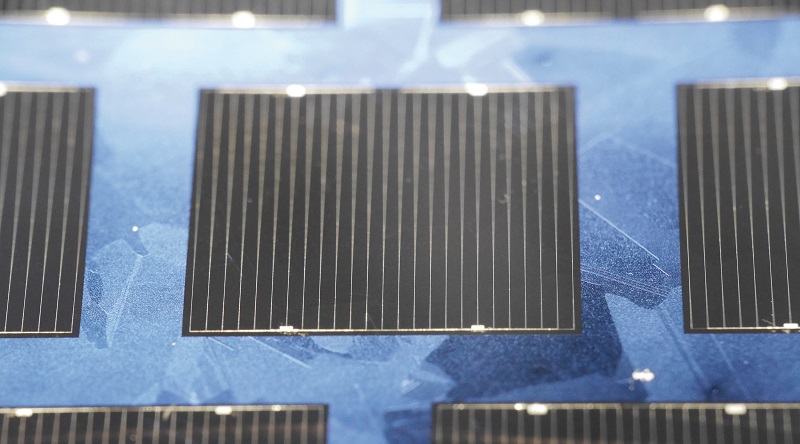German solar research institute Fraunhofer ISE has revealed it was able to improve the efficiency of its multicrystalline solar cell by 0.4%. The research institute said it was able to beat its own record of 21.9%, which was set in February, and reach an efficiency of 22.3%.
Fraunhofer scientists said that the cell which achieved the new record efficiency is based on polysilicon provided by German manufacturer Wacker, and that they had to adjust their efforts to the needs of the multicrystalline material in both the crystallization and the cell processing steps.
The record-setting cell is based on Fraunhofer’s TOPCon cell technology, which deploys passivated backside contacts, which are applied to the rear surface of the cell without patterning. The researchers claim that this allows for a simplified manufacturing process alongside higher energy yield, and for a reduction of charge-carrier losses.
“The key to our success was the holistic approach, which enabled us to optimize all steps, from the crystallization up to the individual solar cell fabrication processes. The close and continual cooperation between the characterization, crystallization and the solar cell technology research teams at ISE allowed us to reduce the loss mechanisms step by step and successfully develop an optimized process chain,” said the institute’s Division Director, Stefan Glunz.
TOPCon technology was previously used by Fraunhofer ISE on monocrystalline PV wafers, with the Institute achieving 25.3% cell efficiency on a mono cell contacted on both sides in 2016.
In July 2016, Chinese manufacturer Trina Solar announced that it had achieved 20.16% conversion efficiency with its multicrystalline PERC technology. Trina claims that the result was achieved on industrial-scale production equipment.
This content is protected by copyright and may not be reused. If you want to cooperate with us and would like to reuse some of our content, please contact: editors@pv-magazine.com.




1 comment
By submitting this form you agree to pv magazine using your data for the purposes of publishing your comment.
Your personal data will only be disclosed or otherwise transmitted to third parties for the purposes of spam filtering or if this is necessary for technical maintenance of the website. Any other transfer to third parties will not take place unless this is justified on the basis of applicable data protection regulations or if pv magazine is legally obliged to do so.
You may revoke this consent at any time with effect for the future, in which case your personal data will be deleted immediately. Otherwise, your data will be deleted if pv magazine has processed your request or the purpose of data storage is fulfilled.
Further information on data privacy can be found in our Data Protection Policy.